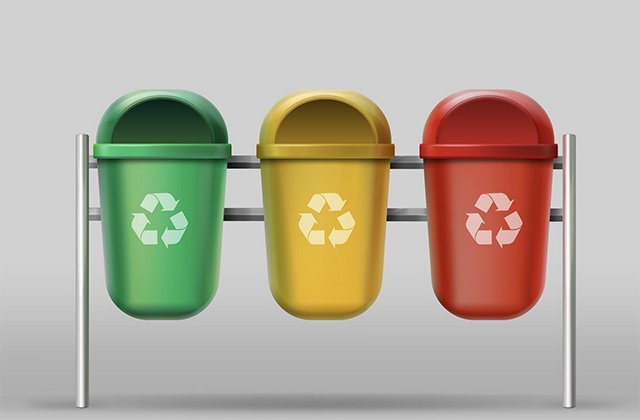Introduction
Solid waste management is one of the most important issues facing communities today. It can also be a very complicated issue, but it doesn’t have to be. There are many ways to manage solid waste effectively and efficiently; the best method for any community depends on its particular needs and resources. One of the best ways to start developing an effective solid waste management plan is by creating a SWMP. A SWMP is a document that provides detailed information about how you will manage your community’s solid waste in an environmentally friendly way. A SWMP helps guide all aspects of your community’s solid waste services, from collection methods all the way through disposal and recycling processes, so that you can avoid negative consequences like pollution or health risks caused by improper disposal practices. Mini skip hire Adelaide provides the best way to provide solid waste management.
It Protects Communities from the Consequences of Improper Waste Management.
In addition to the environmental issues associated with improper waste management, there are significant health and social problems that can develop. Poorly managed solid waste can lead to a variety of health hazards including:
- The spread of disease. Ingesting or breathing in poor quality air that contains hazardous chemicals from improperly disposed waste can cause illness and death.
- Loss of natural resources when landfill sites leak into nearby water sources, killing fish and other aquatic animals and plants as well as damaging soil quality by reducing its ability to absorb rainfall and retain nutrients
The above consequences are just some examples of what happens when a community isn’t managing their solid waste properly—but they don’t even begin to encompass all that could go wrong if this issue isn’t addressed!
It Prevents Pollution of the Environment.
- Landfill Leachate:
Landfill leachate is the liquid that seeps into the ground at landfills, and it’s the main source of groundwater contamination. It comes from both organic and inorganic substances, such as oil, grease and heavy metals. The EPA requires that landfills be lined with clay or plastic to prevent leachate from seeping into groundwater supplies. The solution can also be treated by installing an anaerobic digester system to convert some of it into methane gas for electricity production.* Air Pollution from Incinerators:
Air pollution from incinerators includes release of mercury vapor when waste is burned at high temperatures along with other particulates like dioxin (a potent carcinogen) into the air through smokestacks.* Air Pollution from Landfills: An estimated 5% of all global warming gases are generated by landfills.* Open Dumps: Open dumps emit harmful pollutants into the air such as carbon monoxide (CO), hydrocarbons (HC), nitrogen oxides (NOx), volatile organic compounds VOCs) & various carcinogenic chemicals like benzene (C6H6), trichloroethylene CETE)
It Prevents Waste from Being Deposited Into Landfills Unnecessarily.
In addition to helping you determine how much waste your business produces, a Solid Waste Management Plan can also help you reduce the amount of waste that needs to be buried in landfills. Landfills are expensive and pollute the environment by releasing toxic gases from decomposing organic material. These harmful emissions can cause serious respiratory problems for both humans and animals, especially if they interact with nearby bodies of water or groundwater systems.
Landfills are also a finite resource; as more businesses produce more trash, landfills will fill up quickly and need to close down before reaching capacity. If this happens on a large scale, it could lead to even more environmental damage because all of those greenhouse gases will have nowhere else to go but into our atmosphere where they’ll trap heat from escaping back into space—which would cause global warming instead of preventing it!
To prevent this vicious cycle from starting up again we need to reduce our consumption so we don’t produce as much waste in the first place
It Develops and Maintains a Recycling Program.
- It develops and maintains a recycling program.
- Recycling is good for the environment.
Recycling reduces the amount of trash going to landfills, which in turn reduces the amount of energy used to make new products. This is especially important because it keeps the economy going by keeping money in circulation and reducing our reliance on foreign resources.
It Helps Reduce Waste in the First Place.
In order to reduce waste in the first place, you need to make sure that your trash is properly sorted and sent off to be recycled. This process can be made easier by buying products that have less packaging or can easily be reused. For example, if you buy your groceries in bulk, then you’re already reducing the amount of packaging in your home. Some people also choose not to buy products with plastic packaging at all because they are harder to recycle and reuse than glass or paper products.
You could also consider making changes in your house hold habits so as not to produce any unnecessary waste on a regular basis. For example: If someone leaves food out on their counter top instead of putting it away immediately after eating breakfast each morning then that food will eventually rot unless someone else eats it before it goes bad; which means there will still be some form of rotting organic matter despite their efforts at reducing waste by eating their leftovers!
Solid waste management plans save money and keep communities healthy.
- Prevents the cost of disposing of waste.
- Prevents the cost of treating waste.
- Prevent the cost of cleaning up waste or repairing damage caused by waste.
- Prevent the costs associated with illness caused by improper disposal and treatment of solid waste like cholera, leptospirosis and typhoid fever, which have been reported in some developing countries where proper environmental management is lacking.
Conclusion
Solid waste management plans help communities to reduce their environmental footprint and save money. They also create jobs and increase revenue for local governments. Ecoskiphire.com.au costs in cleaning up waste are not expensive compare to others.

